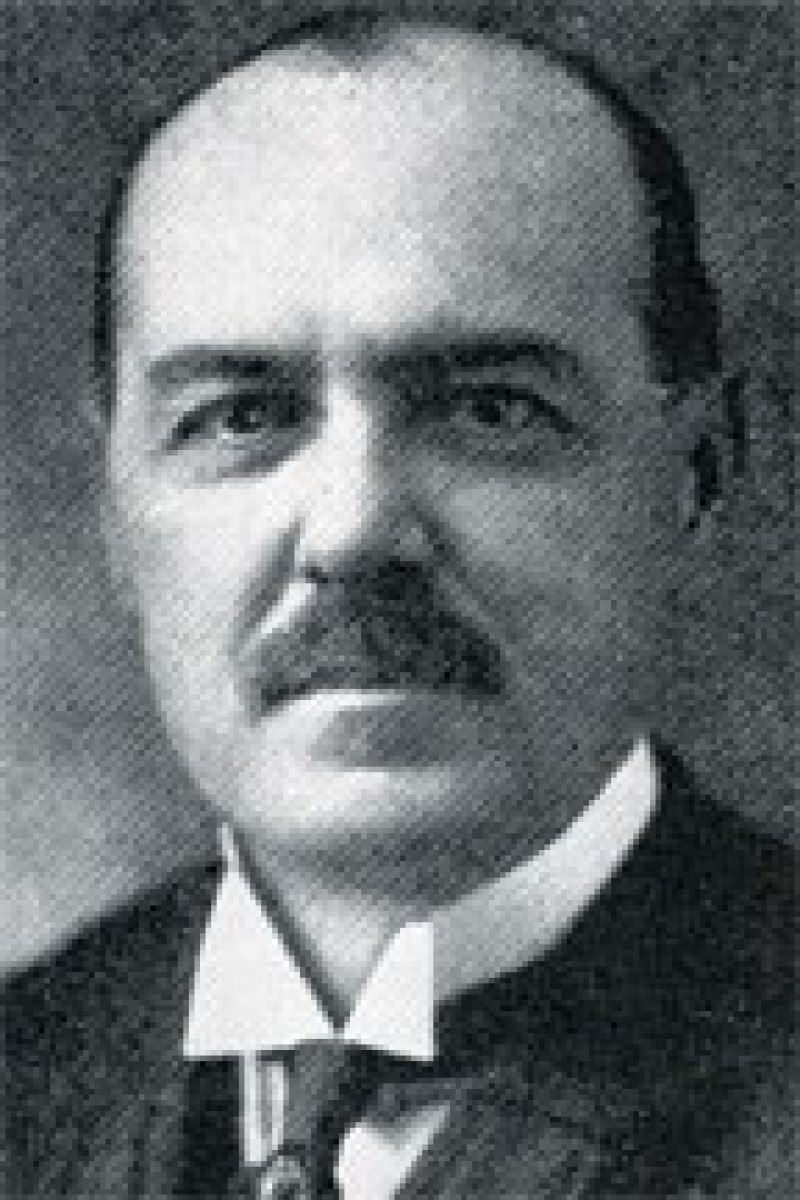Reuben Melville (R.M.) Wanamaker
Throughout his life, Judge Reuben Melville (R.M.) Wanamaker acted with integrity and courage. Some of his decisions put him in physical danger and others were strongly opposed. His Supreme Court of Ohio memorial states, “He was fearless in advocacy of what he thought to be right, and never hesitated to express his beliefs whether or not the same were in accord with the then prevailing popular opinion.”
Wanamaker was born Aug. 2, 1866 to Daniel and Laura Schoenberger Wanamaker in North Jackson, Ohio. After attending the village schools of North Jackson, he taught for several years before entering Ohio Northern University in 1884. He alternated for the next several years between teaching and attending college to study law. During this period, he was principal of the high school in Ada and later served as principal of the West Side School in Lima. He also studied law with the legal firm of Ridenour and Halfhill in Lima.
Wanamaker was admitted to the bar in March 1893 before graduation from Ohio Northern University. On Oct. 1, 1893, he and his classmate, William E. Young, established the legal firm of Wannamaker and Young in Akron, Ohio.
In 1895, Wanamaker was elected Summit County prosecuting attorney and re-elected in 1898. Wanamaker resumed his law practice with William E. Young after his term ended. In 1905, he was elected to the Court of Common Pleas of the Fourth Judicial District, Second Sub-division, which included Summit, Medina and Lorain counties.
In 1912, Wanamaker canvassed Ohio for petition signatures to have his name placed on the ballot for election to the Supreme Court. Running as a Progressive candidate, he was elected and became the first Justice to be elected to that position without party endorsement. He assumed his duties on Jan. 1, 1913 and he was re-elected in 1918.
Wanamaker’s opinions are in volumes 87 to 111 of the Ohio State Reports. His most significant contributions to Ohio jurisprudence were his efforts to help the Supreme Court interpret and apply the 18th Amendment of the Ohio Constitution as amended Sept. 3, 1912. This amendment gave, among other things, powers of self-government to municipalities. The Supreme Court ruled in State ex rel City of Toledo v. Lynch, Auditor (1913) that the Toledo City Council did not have the powers of self-government, since it did not adopt a city charter. In a blistering dissent, Wanamaker quoted Article VIII, Section 1 of the 1802 Ohio Constitution: “All power is inherent in the people.” He pointed out that towns, villages and cities exercised the powers of self-government before there were state and national governments and further, that the powers of the state government were delegated to it by the people.
Wanamaker married Fannie Jane Snow on April 7, 1890 and they had two children.
In 1923, Wanamaker began suffering severe depression, which medical treatment did not alleviate. He did not hear cases before the Supreme Court, but participated in conferences to cast the deciding vote when there was a 3-3 tie. At the expiration of his term in 1924, Wanamaker decided not to enter the Republican primary for a position on the Court. Instead, he opted to run for re-election as an independent candidate in the November election, hoping he would recover enough to campaign.
On June 12, Wanamaker was admitted to Mount Carmel Hospital in Columbus for treatment of his depression. On the morning of June 18, 1924, he committed suicide. The funeral was at Billow Funeral Chapel in Akron on June 20, 1924.
Wanamaker’s legacy was aptly expressed in an editorial in the Akron Beacon Journal of June 19, 1924. They wrote: “In the law, he saw a rule of action that was a vital and living thing, having a tremendous effect upon the lives and fortunes of many ordinary men and women, and it was just there that his sympathetic research made him one of the most useful judges that ever sat upon any bench.”

b. Aug. 2, 1866
d. June 18, 1924
78th Justice of the Supreme Court of Ohio
TERM
Jan 1, 1913
to Jun 18, 1924
